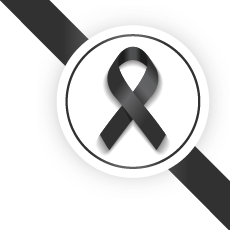ความเหนื่อยล้า
โดย:
เลดี้
[IP: 146.70.120.xxx]
เมื่อ: 2023-08-25 14:48:11
อาการเหนื่อยล้ามักเกิดขึ้นพร้อมกับอาการอื่นๆ เช่น อาการซึมเศร้าและขาดความปรารถนาที่จะทำกิจกรรมที่คุณเคยชอบ ปัญหาในการเพ่งสมาธิหรือการโฟกัส พลังงานและแรงจูงใจต่ำมาก ความกังวลใจความวิตกกังวลและหงุดหงิด ปวดกล้ามเนื้อและอ่อนแรง อาการเหนื่อยล้าอื่นๆ ได้แก่ ตาเหนื่อยล้า. ขาเหนื่อย. เหนื่อยล้าทั้งร่างกาย ไหล่แข็ง อาการไม่สบาย (ไม่สบาย/ไม่สบายใจ) ความเบื่อหน่าย ใจร้อน. Cleveland Clinic is a non-profit academic medical center. Advertising on our site helps support our mission. We do not endorse non-Cleveland Clinic products or services. Policy POSSIBLE CAUSES What causes fatigue? Many conditions, disorders, medications and lifestyle factors can cause fatigue. Fatigue can be temporary, or it can be a chronic condition (lasting six months or more). You may be able to quickly fix fatigue by changing your diet, medications, exercise or sleep habits. If an underlying medical condition is causing your fatigue, a healthcare provider can usually treat the condition or help you manage it. Fatigue causes include Lifestyle habits Certain lifestyle factors can contribute to fatigue. These factors may include Poor diet. Excessive alcohol use. Illegal drug use. Stress. Burnout. Inactive (sedentary) lifestyle. Jet lag. Sleep disorders Certain sleep disorders can cause long-term exhaustion and extreme fatigue. These may include Insomnia. Sleep apnea. Narcolepsy. Shift work sleep disorder. Prescription medications and treatments Certain prescription medications can cause fatigue, including Benzodiazepines. Sedative-hypnotics. Antipsychotics. Anxiolytics. Opioids. Anticonvulsants. Beta-blockers. Other medications and treatments Certain other medications and treatments can cause fatigue, including Over-the-counter (OTC) drugs, including antihistamines. Bone marrow transplants. Chemotherapy. What medical conditions cause fatigue? Fatigue is a symptom of a wide range of diseases, disorders and deficiencies affecting various parts of your body. Hundreds of conditions and disorders can lead to fatigue. Some of the most common causes of fatigue include Infections Many infections can cause fatigue, including Mononucleosis. HIV. COVID-19. Influenza. Pneumonia. Lyme disease. Heart and lung problems Fatigue is a common symptom of cardiovascular and lung conditions such as Heart disease. Postural orthostatic tachycardia syndrome (POTS). Chronic obstructive pulmonary disease (COPD). Emphysema. Congestive heart failure. Mental health conditions Fatigue due to certain mental health conditions may make it difficult or impossible to perform daily activities. These conditions may include Depression. Anxiety. Post-traumatic stress disorder (PTSD). Autoimmune disorders Fatigue is a symptom of many autoimmune diseases, including Type 1 diabetes. Lupus. Multiple sclerosis (MS). Myasthenia gravis. Rheumatoid arthritis. Sjögren’s syndrome. Hormonal imbalances Problems with your endocrine system (the glands in your body that make hormones) can lead to exhaustion. Hypothyroidism is a common cause of fatigue. Other chronic conditions Certain chronic conditions can cause severe, long-lasting fatigue. These include Cancer. Chronic fatigue syndrome (also called CFS or myalgic encephalomyelitis). Fibromyalgia. Kidney disease. Type 2 diabetes. Deficiencies Anemia and other vitamin deficiencies (such as vitamin D or vitamin B12) are often responsible for fatigue. Dehydration can cause fatigue because the body needs plenty of fluids to function. Weight issues and eating disorders Certain weight issues and eating disorders can lead to fatigue and a range of other symptoms. These may include Anorexia. Bulimia. Overweight/obesity. Underweight. CARE AND TREATMENT How can my healthcare provider help me manage fatigue? To find out what’s causing your fatigue, your healthcare provider will ask questions about your lifestyle and medications. They’ll also conduct a physical examination. They might order some lab tests to check certain levels in your blood and urine. Your provider may also order a pregnancy test. To relieve fatigue, your provider will treat (or help you manage) the condition or disorder that’s causing it. Depending on your health, your treatment plan may include a combination of medication, exercise or therapy. If you’re taking a medication that makes you feel exhausted, talk to your provider about the risks and benefits of stopping the medication or trying a new one. How can I ease or relieve fatigue at home? If a medical condition isn’t causing your fatigue, lifestyle changes may improve your symptoms. To reduce fatigue, you can Practice good sleep habits Aim for seven to nine hours of sleep every night. Don’t drink caffeine, use electronics or exercise right before bed. Try to go to bed and get up at the same time every day. Avoid alcohol and substance use Don’t use illegal drugs, and drink alcohol in moderation, if at all. Eat a healthy diet A balanced diet and plenty of water will keep your body nourished and hydrated. Manage stress Yoga, mindfulness, meditation and regular exercise can help you relieve stress and gain more energy. See your healthcare provider Make an appointment to rule out infections, disease, illness, vitamin deficiencies and other health conditions. You should also talk to your provider about the medications you’re taking to see if they’re causing your symptoms. Exercise often Regular exercise is crucial for a healthy lifestyle. Though it might seem counter-intuitive, vigorous exercise can help you feel more energetic once you get used to it. But exercising too much can cause fatigue, so talk to your provider about what’s best for you. Reach and maintain a healthy weight Talk to your healthcare provider about your ideal weight and try to stay within that range. WHEN TO CALL THE DOCTOR When should I call my healthcare provider about fatigue? It’s normal to feel tired now and then. Everyone experiences occasional, brief fatigue due to illness, sleep disturbances, travel or changes in diet or medication. But you should talk to your healthcare provider if you’re tired all the time. You should also call your provider if Your fatigue lasts longer than a few days. You’re having a hard time going to work or performing daily activities. There isn’t a clear reason (such as a recent illness) for your fatigue. It comes on suddenly. You’re over the age of 65. You’ve also been losing weight. Fatigue can be a sign of a serious health condition. You should seek immediate medical attention if you have fatigue along with other symptoms, such as Shortness of breath or pain in your chest, arm or upper back. Heartbeat that’s unusually fast (tachycardia) or slow (bradycardia). Heartbeat that’s pounding or fluttering (heart palpitations) or irregular (arrhythmia). Headache or vision problems (especially if you’ve hit your head recently). Nausea, vomiting or abdominal pain. Muscle weakness. Thoughts of harming yourself or others. A note from Cleveland Clinic ทุกคนมีความเหนื่อยล้าเป็นบางครั้งบางคราว แต่ความเหนื่อยล้าทำให้คุณตื่นเช้าและใช้ชีวิตไปตลอดทั้งวันได้ยาก ปัจจัยหลายประการสามารถนำไปสู่ความเหนื่อยล้า รวมถึงสภาวะสุขภาพ ยา และนิสัยการใช้ชีวิต หากคุณรู้สึกเหนื่อยมากเกินไปมาหลายวันแล้ว ให้ติดต่อผู้ให้บริการด้านการดูแลสุขภาพของคุณ ความเหนื่อยล้า พวกเขาสามารถช่วยให้คุณทราบสาเหตุเบื้องหลังของอาการของคุณและช่วยคุณรักษาหรือจัดการได้ เฟสบุ๊คทวิตเตอร์ลิงค์อินอีเมลพิมพ์ ตรวจสอบทางการแพทย์ ตรวจสอบล่าสุดโดยผู้เชี่ยวชาญทางการแพทย์ของ Cleveland Clinic เมื่อวันที่ 13/04/2023 เรียนรู้เพิ่มเติมเกี่ยวกับกระบวนการแก้ไข ของเรา อ้างอิง รับข้อมูลด้านสุขภาพที่เป็นประโยชน์และเกี่ยวข้อง ลงชื่อ เยี่ยมชมสิ่งจำเป็นด้านสุขภาพ
- ความคิดเห็น
- Facebook Comments


